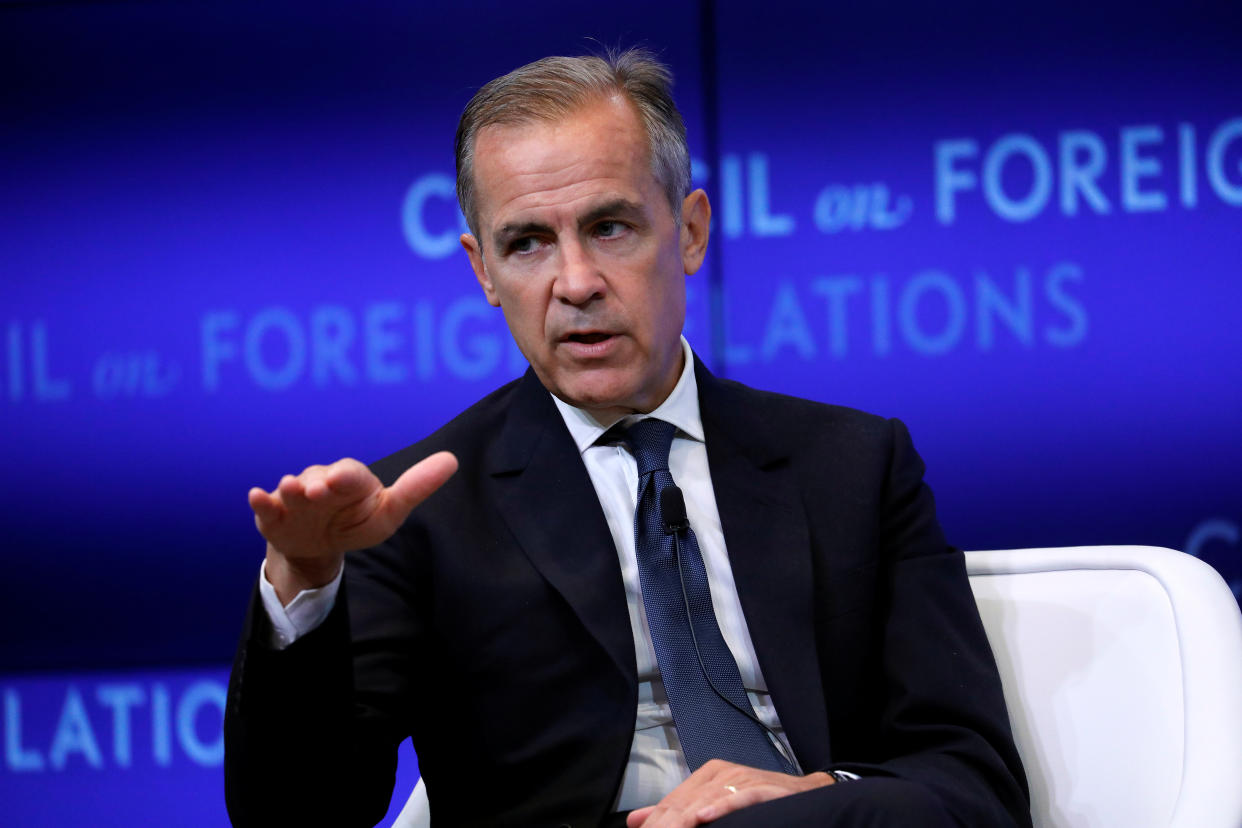Bank of England set to hold rates as Brexit uncertainty reigns

The Bank of England is expected to leave interest rates unchanged on Thursday as Brexit uncertainty continues to hang over the UK economy.
Central banks around the world have cut interest rates in recent weeks, amid signs of slowing growth and warnings of a possible impending recession in the US.
Despite this, economists expect the Bank of England’s Monetary Policy Committee (MPC) to leave the headline interest rate unchanged at 0.75% when it publishes its latest decision at 12pm UK time.
“We expect rates to remain on hold for the foreseeable future,” James Smith, a developed markets economist at ING, said in a note to clients on Wednesday.
“Despite recent moves by the Fed and the ECB, we think it’s too early to be pencilling in UK rate cuts and we suspect the Bank of England will retain its notional tightening bias tomorrow.”
READ MORE: UK house prices see first September fall in nine years as Brexit bites
Samuel Tombs, the chief UK economist at Pantheon Macroeconomics, told clients “only a sharp downturn in the economy will prompt the MPC to cut [the] Bank Rate again.”
Analysts cite continued uncertainty around the outcome on Brexit as the main factor tying the Bank of England’s hands on rates.
“The Bank wants to retain flexibility ahead of Brexit, and has indicated it’s prepared to play the ball as it comes off the wicket in the event of a disruptive exit,” Ben Brettell, a senior economist at Hargreaves Lansdown, said.
ING’s Smith said: “With Brexit uncertainty still very much alive, we'd expect policymakers to strike a cautious tone.”
The Bank of England has in recent months signalled it is more likely to raise rates that cut them.
The UK is currently enjoying buoyant labour market that is likely to increase inflationary pressure. Unemployment is close to record lows and wages are growing at their fastest pace in 11 years. That means people will have more money to spend and it could push up prices. Raising rates of interest to encourage saving would be the obvious solution.
Oddly, inflation appears to be slowing. Data published on Wednesday showed an unexpectedly weak reading 1.7% in August, the lowest reading since 2016.
The pound fell against both the euro (GBPEUR=X) and the dollar (GBPUSD=X) when the data was published, as investors bet the below-target reading meant the Bank of England was almost guaranteed not to raise rates on Thursday.
READ MORE: Why October is the 'worst time' of the year for a no-deal Brexit
However, the data remains in-line with the Bank of England’s forecasts and the central bank expects inflation to soon pick up and trend towards its 2% target.
“It is this outlook for inflation, alongside our assumptions of a Brexit deal/transition arrangements being agreed, that leads us to conclude that the BoE will remain of the view that normalisation in policy (rather than further easing) will be the next step for the MPC,” George Buckley, Nomura’s chief UK & euro area economist, wrote in a note to clients.
Buckley said he expects the Bank to simply reiterate statements signalling a potential future rate rise rather than taking any action this week.
————
Oscar Williams-Grut covers banking, fintech, and finance for Yahoo Finance UK. Follow him on Twitter at @OscarWGrut.
Read more:

